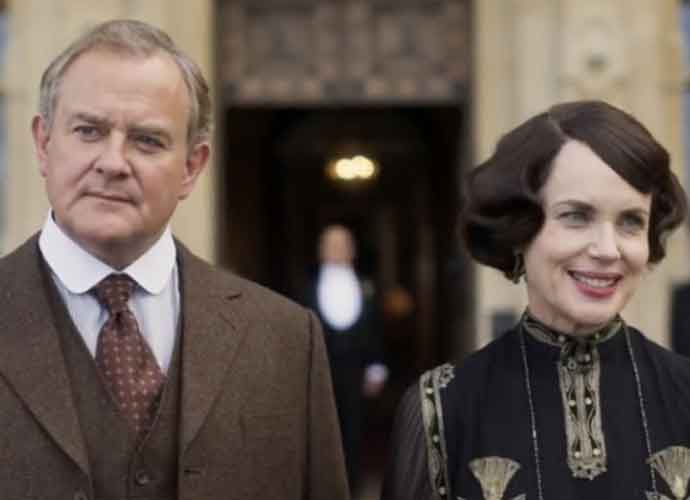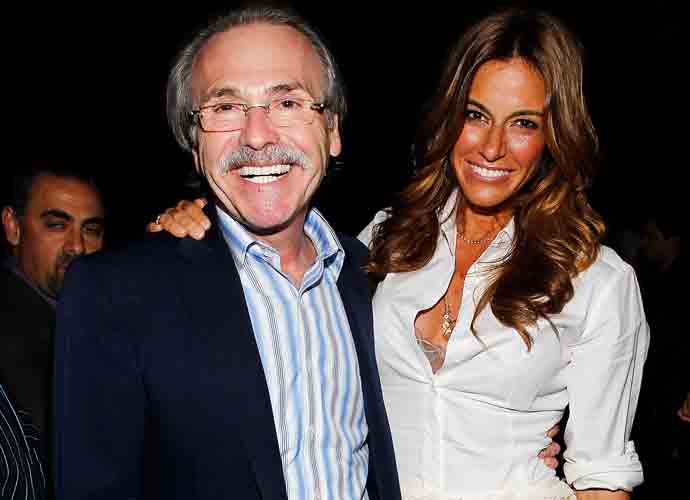VIDEO EXCLUSIVE: Elizabeth McGovern & Hugh Bonneville On ‘Downton Abbey’ Movie, Inspiration For Characters
Downton Abbey fans are surely brimming with excitement over the release of the new film based on the award-winning British historical drama series.
Elizabeth McGovern and Hugh Bonneville reprise their roles as the Countess and Earl of Grantham, Cora and Robert Crawley, in the film. The pair of actors spoke exclusively to uInterview about the making of the movie and their characters, who are two members of an aristocratic English family during the early 20th century. The Downton Abbey film is directed by Michael Engler and is reportedly set in 1927, thus picking up approximately two years after the events of the 2015 season six Christmas special. Bonneville began by explaining how in the film, the Crawleys and their servants are forced to prepare for a major event.
“Downton seems to be in a fairly good state [and] the story has moved on 18 months from the end of the TV series. Everyone’s a little older and wiser perhaps, but there’s no great internal strife with the family,” Bonneville said of the Crawley family’s situation at the start of the film. “And then, this letter arrives saying the royals are going to come and visit and that impacts absolutely everybody who lives and works in the house, from ourselves to Daisy the maid,” he added, referencing one of the characters who is a servant for the Crawleys.
McGovern, who is American, added that her character is just as excited as everyone else at Downton for the royals’ imminent visit. However, the actress noted, Cora does not have as many duties as other characters like Michelle Dockery‘s Mary Talbot.
“[Cora’s] level of responsibility doesn’t seem to go beyond the pressure of what she’s going to wear because Mary has very much taken over the running of the household,” said McGovern. “So it’s very nice for my character because Mary is shouldering all my stress and I’m very graciously allowing her to and enjoying it,” she added while laughing alongside Bonneville.
The pair of actors also revealed who their characters were loosely based on. Bonneville explained that Julian Fellowes — the creator and executive producer of Downtown Abbey who also served as the film’s screenwriter — modeled Robert Crawley after his father. Bonneville cited Fellowes himself in describing the latter’s dad as a “firm but fair patriarch,” as well as a “liberal-minded and compassionate man.”
“I think that sense of compassion and tolerance goes through so many of the characters and is in Julian himself,” said Bonneville. “I think it’s one of the reasons the characters have resonated.”
McGovern said she felt as though she could relate to the character of Cora before even getting the opportunity to play her, thanks largely to her personal experience.
“I was in England raising English daughters who would look at me and talk in an English accent,” she said. “We were coming from two different cultures.”
McGovern added she conceived an idea of Cora as having come to England from America as a descendant of Pilgrims or “founders of America” who arrived to the present-day United States via the Mayflower. However, she added that the casting of Shirley MacLaine as her mother for a recurring role on season 3 quickly changed her perspective of Cora’s origin story.
Bonneville said the large group scenes were among the most exciting for him to act in, like the sequence where the king and queen come to town and see a parade of horses.
“On the screen, you see this extraordinary sweep of British pageantry coupled with detail of family life,” said Bonneville of the film. “I think that encapsulates Downton Abbey at its best: these sweeping vistas, this sense of epic grandeur but also these tiny domestic stories that you and I can relate to.”
McGovern cited an Armistice Day scene in the film as an example of the strong sense of unity the cast felt while shooting.
“I remember feeling then, there was just something about everybody working as one,” she said.
Downton Abbey is now out in the United Kingdom and will be released in the United States on Friday (September 20). The film also stars Laura Carmichael, Maggie Smith and Jim Carter.
RELATED ARTICLES
Get the most-revealing celebrity conversations with the uInterview podcast!









Leave a comment